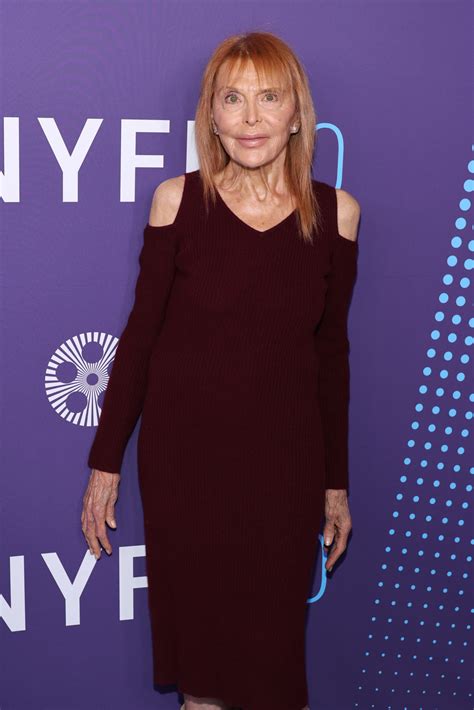
Brenda Song revealed that she was fired by her agents after she refused to participate in a Nickelodeon revival of “All That,” emphasizing her desire to pursue more serious acting roles and distance herself from her child star image. Song recounted the experience on the “HypochondriActor” podcast, explaining that her decision was met with resistance from her representation, who ultimately dropped her.
Brenda Song, known for her roles in Disney Channel’s “The Suite Life of Zack & Cody” and other teen-oriented projects, recently disclosed that her career trajectory faced unexpected turbulence when she declined an offer to return to Nickelodeon for a reboot of the sketch comedy show “All That.” In a revealing conversation on the “HypochondriActor” podcast, hosted by Sean Hayes and Dr. Priyanka Wali, Song shared the circumstances surrounding her departure from her talent agency following her refusal to participate in the revival. This decision, driven by her aspiration to transition into more mature and diverse roles, highlighted the challenges actors face in reshaping their public image and breaking free from typecasting. Song’s account underscores the complexities of navigating the entertainment industry, where personal artistic goals can clash with professional expectations and representation dynamics.
Song’s journey from a child actor to a performer seeking more substantial roles is a common narrative in Hollywood, but her experience sheds light on the often-unseen power dynamics between actors and their agents. According to Song, her agents did not support her vision for her career and perceived her decision as a rejection of a lucrative opportunity. This conflict ultimately led to her being dropped, a significant setback for any actor. “They fired me,” Song stated on the podcast, emphasizing the finality of the agency’s decision.
The “All That” reboot, which eventually premiered in 2019, featured a new cast of young comedians and included appearances from original cast members. While the revival aimed to recapture the nostalgic appeal of the original series, Song’s decision not to participate reflected her desire to move beyond the type of comedy that had defined her early career. Her focus was on securing roles that would challenge her as an actress and allow her to showcase her versatility.
Song’s perspective offers a candid look into the pressures and expectations placed on young actors, particularly those who find success in children’s programming. While these roles can provide a platform for visibility and financial stability, they can also create obstacles for actors seeking to be taken seriously in more adult-oriented projects. Song’s decision to prioritize her long-term career goals over short-term gains demonstrates a strategic approach to her career, albeit one that came with immediate consequences.
The implications of Song’s experience extend beyond her personal career path. It raises questions about the role of talent agencies in shaping actors’ careers and the extent to which they should prioritize their clients’ artistic aspirations over financial opportunities. Song’s story serves as a reminder that actors must often advocate for themselves and make difficult choices to align their professional lives with their personal values.
Early Career and Transition:
Brenda Song began her acting career at a young age, quickly establishing herself as a prominent figure in children’s television. Her breakthrough role came with Disney Channel’s “The Suite Life of Zack & Cody,” where she played the character of London Tipton. The show’s success catapulted Song into the spotlight, making her a household name among young audiences. This role, while providing significant exposure and opportunities, also cemented her image as a teen star.
As Song matured, she expressed a desire to explore more challenging and diverse roles. She sought to break away from the typecasting that often accompanies child actors and demonstrate her range as a performer. This transition required her to make strategic decisions about the projects she chose and to actively seek out opportunities that would showcase her versatility.
The “All That” Revival Offer:
Nickelodeon’s decision to revive “All That” presented Song with a dilemma. The original series, which aired from 1994 to 2005, was a cultural phenomenon that launched the careers of numerous comedians and actors. A reboot offered the potential for renewed visibility and a connection to a beloved franchise. However, for Song, returning to the same type of comedy that had defined her early career did not align with her long-term goals.
“It was very clear to me that I wanted to do dramas,” Song explained on the podcast. Her focus had shifted towards more serious and complex roles that would allow her to explore different facets of her acting abilities. The “All That” revival, while potentially lucrative, represented a step backward in her pursuit of these goals.
Conflict with Agents:
Song’s decision to decline the “All That” offer was met with resistance from her agents. They viewed the opportunity as a guaranteed success and a chance for Song to capitalize on her established fan base. The agents argued that returning to Nickelodeon would maintain her visibility and open doors to other projects.
However, Song remained steadfast in her decision. She believed that taking on the “All That” revival would reinforce her image as a teen star and hinder her efforts to be taken seriously in more mature roles. This difference in perspective created a significant conflict between Song and her agents.
“I said no to ‘All That,’ and they didn’t want me to say no,” Song recounted. The disagreement escalated to the point where the agents questioned her judgment and commitment to her career. Ultimately, they decided to terminate their representation of Song.
The Aftermath:
Being fired by her agents was a challenging experience for Song. It left her without professional representation and forced her to navigate the industry on her own. However, Song remained committed to her vision for her career and continued to seek out opportunities that aligned with her goals.
She eventually found new representation and began to secure roles in a variety of projects, including television dramas and independent films. These roles allowed her to showcase her versatility and demonstrate her ability to handle more complex characters.
Song’s experience highlights the importance of actors having a clear understanding of their career goals and being willing to advocate for themselves, even in the face of opposition. It also underscores the power dynamics that exist between actors and their agents and the need for open communication and mutual respect.
Industry Perspectives:
Song’s story has resonated with many in the entertainment industry, particularly those who have faced similar challenges in transitioning from child stardom to adult acting careers. Her experience has sparked conversations about the pressures and expectations placed on young actors and the importance of agents supporting their clients’ artistic aspirations.
Some industry professionals have praised Song for her courage in standing up for her beliefs and prioritizing her long-term career goals over short-term gains. They argue that her decision demonstrates a strategic approach to her career and a commitment to her craft.
Others have expressed concern about the potential consequences of actors challenging their agents, particularly those who are early in their careers. They argue that agents play a crucial role in securing opportunities and navigating the complexities of the industry.
Broader Implications:
Song’s experience has broader implications for the entertainment industry as a whole. It raises questions about the types of roles that are available to actors of color and the extent to which they are given the opportunity to showcase their versatility. It also highlights the importance of diversity and inclusion in casting decisions and the need for more representation of actors from underrepresented groups in leading roles.
Song’s story serves as a reminder that the entertainment industry is constantly evolving and that actors must be willing to adapt and reinvent themselves in order to stay relevant. It also underscores the importance of actors having a strong support system and being able to rely on their own instincts when making career decisions.
Song’s Recent Projects:
Despite the challenges she faced, Brenda Song has continued to thrive in her acting career. She has appeared in a variety of television shows and films, showcasing her versatility as an actress. Some of her recent projects include roles in the Hulu series “Dollface” and the Netflix film “Secret Obsession.” She also voices Anne Boonchuy in the Disney animated series “Amphibia.”
These projects demonstrate Song’s ability to transition from teen stardom to more mature roles and her willingness to take on diverse and challenging characters. Her success is a testament to her talent, her determination, and her commitment to her craft.
Lessons Learned:
Brenda Song’s experience offers several valuable lessons for aspiring actors and those navigating the entertainment industry:
- Know Your Goals: Have a clear understanding of your career aspirations and be willing to advocate for yourself.
- Be Strategic: Make informed decisions about the projects you choose and prioritize your long-term goals over short-term gains.
- Build a Strong Support System: Surround yourself with people who believe in you and will support your decisions.
- Stay True to Yourself: Don’t compromise your values or artistic vision in order to please others.
- Be Resilient: The entertainment industry is full of challenges and setbacks. Learn from your experiences and keep moving forward.
Brenda Song’s journey is a testament to the power of perseverance and the importance of staying true to oneself. Her story serves as an inspiration to aspiring actors and a reminder that anything is possible with hard work, dedication, and a clear vision.
The Role of Representation:
The role of talent agencies in an actor’s career is multifaceted. Agents are responsible for securing auditions, negotiating contracts, and providing guidance on career decisions. They act as advocates for their clients, promoting their talent and helping them navigate the complexities of the entertainment industry.
However, the relationship between an actor and their agent is not always harmonious. Agents may have different priorities than their clients, and conflicts can arise over the types of roles they pursue and the direction of their careers.
In Brenda Song’s case, her agents prioritized financial opportunities over her artistic aspirations. They believed that returning to Nickelodeon for the “All That” revival would be a lucrative move for Song, even though it did not align with her long-term goals.
This conflict highlights the importance of actors finding agents who share their vision and are willing to support their artistic choices. It also underscores the need for open communication and mutual respect between actors and their representatives.
The Pressure to Conform:
The entertainment industry often places pressure on actors to conform to certain standards and expectations. This pressure can be particularly intense for young actors who are trying to establish their careers.
Actors may be encouraged to maintain a certain image, take on certain types of roles, or follow a certain career path in order to appeal to a wider audience. This pressure can lead to actors feeling like they have to compromise their values or artistic vision in order to succeed.
Brenda Song’s experience demonstrates the importance of actors resisting the pressure to conform and staying true to themselves. Her decision to decline the “All That” revival was a bold move that ultimately allowed her to pursue more fulfilling and challenging roles.
Navigating Typecasting:
Typecasting is a common challenge for actors, particularly those who find success in a specific type of role. Once an actor becomes known for playing a certain character, it can be difficult to break free from that image and be considered for other types of roles.
Brenda Song faced the challenge of typecasting after her success on “The Suite Life of Zack & Cody.” She became known for playing the character of London Tipton, a wealthy and somewhat ditzy heiress. While this role provided her with significant exposure, it also made it difficult for her to be taken seriously in more dramatic roles.
Song’s decision to decline the “All That” revival was partly motivated by her desire to avoid being further typecast. She wanted to demonstrate her versatility as an actress and show that she was capable of playing a wider range of characters.
The Power of Choice:
Ultimately, Brenda Song’s story is about the power of choice. She made a conscious decision to prioritize her long-term career goals over short-term gains, even though it meant facing significant challenges.
Her experience demonstrates that actors have the power to shape their own careers and make choices that align with their values and artistic vision. It also underscores the importance of actors being proactive in seeking out opportunities and advocating for themselves.
The Importance of Self-Advocacy:
In the entertainment industry, self-advocacy is essential for actors who want to control their own careers. This means being proactive in seeking out opportunities, networking with industry professionals, and standing up for their beliefs.
Brenda Song’s experience highlights the importance of actors being willing to advocate for themselves, even in the face of opposition. Her decision to decline the “All That” revival was a bold move that required her to stand up to her agents and defend her artistic vision.
Self-advocacy also involves being informed about the industry, understanding your rights as an actor, and being willing to negotiate for fair treatment. It is a continuous process that requires actors to be proactive and assertive in pursuing their goals.
The Evolving Landscape of Entertainment:
The entertainment industry is constantly evolving, with new platforms, new technologies, and new opportunities emerging all the time. This constant change requires actors to be adaptable and willing to embrace new challenges.
Brenda Song’s career reflects the evolving landscape of entertainment. She has successfully transitioned from traditional television to streaming platforms and has taken on a variety of roles in different genres.
Her ability to adapt to the changing industry is a testament to her talent, her versatility, and her willingness to embrace new opportunities. It also underscores the importance of actors being lifelong learners and staying up-to-date on the latest trends and technologies.
The digital age has also democratized the entertainment industry to a certain degree. Actors now have more control over their careers, utilizing social media platforms and online portfolios to connect with casting directors and producers. This shift in power dynamics empowers actors to market themselves and create their own opportunities, reducing their reliance on traditional talent agencies.
Brenda Song’s story emphasizes the importance of self-reliance and adaptability in this evolving landscape. By prioritizing her artistic vision and proactively pursuing diverse roles, she has carved a path for herself in the industry, demonstrating that actors can thrive by embracing change and taking control of their own narratives.
The Future of Brenda Song’s Career:
Brenda Song’s career continues to evolve, and she remains a prominent figure in the entertainment industry. Her talent, her versatility, and her commitment to her craft have allowed her to overcome challenges and achieve success.
As she continues to take on new and challenging roles, Song is sure to inspire aspiring actors and pave the way for more diverse and inclusive representation in Hollywood. Her story serves as a reminder that anything is possible with hard work, dedication, and a clear vision.
Her recent projects hint at her continued commitment to diverse roles, moving between comedy and drama with ease. This versatility positions her well for a long and successful career, proving that her early decisions were indeed strategic and aligned with her long-term goals.
Brenda Song’s legacy will likely be one of resilience, self-advocacy, and artistic integrity. She has demonstrated that it is possible to navigate the complexities of the entertainment industry while staying true to oneself and pursuing meaningful work.
Frequently Asked Questions (FAQ):
-
Why did Brenda Song refuse to participate in the “All That” revival?
- Brenda Song declined the offer to participate in the “All That” revival because she wanted to pursue more dramatic and mature roles, feeling that returning to the Nickelodeon sketch comedy show would reinforce her image as a teen star and hinder her efforts to be taken seriously in more adult-oriented projects. As she stated on the “HypochondriActor” podcast, “It was very clear to me that I wanted to do dramas.”
-
What was the reaction of Brenda Song’s agents to her decision?
- Song’s agents were not supportive of her decision to decline the “All That” offer. They viewed it as a missed opportunity for visibility and financial gain. This disagreement led to a conflict, ultimately resulting in her being fired by the agency.
-
What happened after Brenda Song was fired by her agents?
- After being fired by her agents, Brenda Song continued to pursue her career goals independently. She eventually found new representation and began to secure roles in a variety of television shows and films that allowed her to showcase her versatility and demonstrate her ability to handle more complex characters.
-
What are some of Brenda Song’s recent projects?
- Brenda Song’s recent projects include roles in the Hulu series “Dollface,” the Netflix film “Secret Obsession,” and voicing Anne Boonchuy in the Disney animated series “Amphibia.” These projects demonstrate her ability to transition from teen stardom to more mature roles and her willingness to take on diverse and challenging characters.
-
What is the key takeaway from Brenda Song’s experience in the entertainment industry?
- The key takeaway from Brenda Song’s experience is the importance of actors having a clear understanding of their career goals and being willing to advocate for themselves, even in the face of opposition. Her story highlights the power dynamics that exist between actors and their agents and the need for open communication and mutual respect. It also underscores the importance of self-advocacy, resilience, and staying true to oneself in the pursuit of meaningful work.









